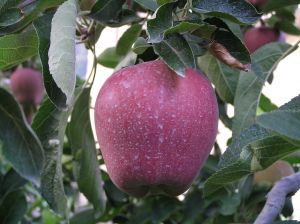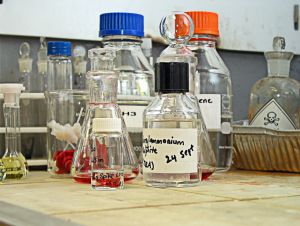From the Summer 2004 newsletter of the Women's Community Cancer Project
c/o the Women's Center, 46 Pleasant Sreet, Cambridge, MA 02139
Cosmetics, Parabens, and Breast Cancer by Rita Arditti
Early this year the media reported that English researchers identified parabens in samples of breast tumors. Parabens (alkyl esters of p-hydroxybenzoic acid) are widely used as antimicrobial preservatives in thousands of cosmetics, personal care products, pharmaceutical products, and food.
There are six commonly used forms (Methylparaben, Ethylparaben, p-Propylparaben, Isobutylparaben, n-Butylparaben and Benzylparaben) and it is estimated that they are used in at least13,200 cosmetics products.
According to the lead researcher of the recent study, Philippa Darbre, an oncology expert at the university of Reading, in Edinburgh, the chemical form of the parabens found in 18 of the 20 tumors testedindicated that they originated from something applied to the skin, the most likely candidates being deodorants, antiperspirants, creams, or body sprays.
Breast cancer is the most common cancer among women, accounting for nearly one of every three cancers diagnosed in U.S. women.
A campaign seeking the removal of toxic chemicals from cosmetics has been recently launched by Women's Voices for the Earth, a women's environmental justice group from Montana (www.womenandenvironment..org).
As a result of their initiative, a coalition of environmental and public health groups has emerged, the Campaign for Safe Cosmetics (www.safecosmetics.org), working to pressure the health and beauty industry to phase out the use of chemicals that are known or suspected carcinogens, mutagens, or reproductive toxins.
In January 2003 the European Union banned the use of these chemicals. By September 2004, all cosmetics and personal care products sold in the member states of the European Union will have to be free of substances considered CMR I and CMR II (carcinogens, mutagens, or reproductive toxins).
Accordingly, the Campaign for Safe Cosmetics is asking the U.S. cosmetics companies to sign the "Compact for the Global Production of Safer Health and Beauty Care Products" committing themselves to comply with those principles in the products they sell in the U.S. and other non-European markets.
The slogan of the campaign, "Because We're Worth It!" sends a clear message to those who disregard women's health concerns in the pursuit of profit.
- Keep an eye on the campaign, have your organization join it, and monitor the follow-up that will ensue.
- Spread the word about cosmetics, parabens, and cancer.
- Go to the webpage of the Environmental Working Group, www.ewg.org and read their report, Skin Deep, a safety assessment of the ingredients in personal care products.
- Visit the webpage of Breast Cancer Action, www.bca.org, and keep yourself informed of new developments regarding corporate interests and cosmetics.
We are part a national and international movement to clean up theearth and out bodies. Think of the power we could have if millions of women demanded safe products for themselves and their families!
Luckily, Breast Cancer Action (BCA) from San Francisco (www.bcaction.org) an organization that is at the forefront of the movement developing critical analysis and recognition of the politics of breast cancer, has done a lot of work on cosmetics and breast cancer.
Their project "Think Before You Pink," www.thinkbeforeyoupink.org, raises excellent questions regarding the cosmetics industry, breast cancer, and their obsession with pink paraphernalia.
BCA points out that a huge number of personal care products contain ingredients that may raise the risk of breast cancer but that the companies that produce them, nevertheless present themselves as committed to the eradication of breast cancer. They do so by running "cause-related marketing campaigns," exploited the good will of customers but making pitiful contributions to breast cancer research. (See the NY Times ad "Philanthropy or Hypocrisy," October 24, 2003 on the BCA webpage).
Paraben-free cosmetics from www.thinkbeforeyoupink.org:
Aubrey Organics Skin, Body & Hair Care Products Caribbean Pacifics Suncare Products Dr. Hauschka Earths Beauty Cosmetics Honeybee Gardens Kettle Care herbal Body Products Living Nature Products Logona Cosmetics Martina Gebhardt Naturkosmetiks Natural Solutions-Holistic Beauty&Health Organic Essentials Skincare (and Nutritional Product) Organic Excellence Hair Care Products Real Purity Cosmetics Restored Balance Herbal Products Sante Kosmetics Suki's Naturals AnneMarie Borlind Natural Beauty
Note: Dr. Bronner's Magic Soaps and all Terressentials products, among others, are also paraben-free as well as made from organic ingredients.
Read full article here.


